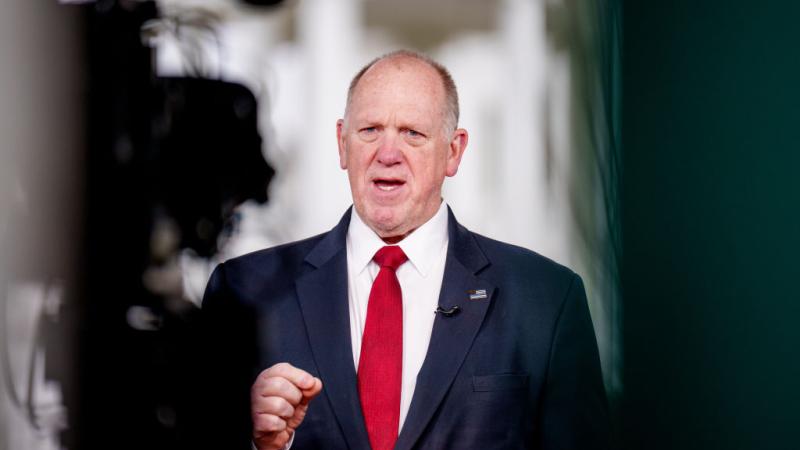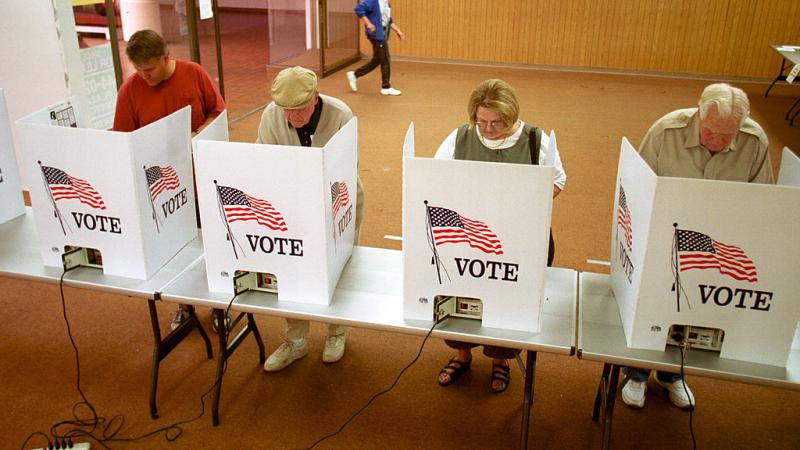Biden's border order contains many exceptions to allow illegal immigrants into US at Mayorkas' will
Loaded with Loopholes: There are notable exceptions as to what is considered an "encounter" for the purposes of shutting down the border.
President Joe Biden says his latest executive order will secure the U.S. southern border and make the influx more manageable by capping the number of illegal immigrants allowed into the United States, but the order contains numerous exceptions to still allow migrants to enter the U.S., including at the discretion of Homeland Security Secretary Alejandro Mayorkas.
The Executive Order issued Tuesday states that the border will close down the day after the Homeland Security secretary determined that illegal immigrant encounters at the border hit 2,500 or more for seven consecutive calendar days. The border would re-open two weeks after the secretary determines that there has been an average of less than 1,500 encounters for seven days in a row. It is unclear how this average would be determined if the border is already shut down.
There are notable exceptions as to what is considered a U.S. Customs and Border Protection encounter that would count toward the 2,500 maximum.
Malleable definition of "encounter"
An "encounter" only refers to a person who is "physically apprehended by CBP immigration officers within 100 miles" of the southwest border within 14 days of entering the U.S. "between points of entry," according to the order. An "encounter" also refers to a person who "is determined to be inadmissible at a southwest land border," the order states.
This means that an illegal immigrant in a city outside of the 100-mile zone, such as San Antonio, would not be considered an "encounter" for the purposes of the 2,500-person total, nor would an illegal immigrant found within the 100-mile boundary more than two weeks after they entered the U.S. A person who approaches the southern border and is determined to be admissible may not be considered as an encounter.
It is unclear, however, how an illegal immigrant, especially one who evades Border Patrol when crossing the border, would prove that they entered the U.S. more than 14 days ago.
Exceptions for broad categories of people
A wide range of migrants will be allowed into the United States, even after the border is closed, and still not count toward the 2,500 average required to shut down the border. This includes unaccompanied minors, victims of a "severe form of trafficking," such as those subject to sex trafficking or slavery. The Executive Order does not detail how such determinations would be made.
People who make an appointment to enter the U.S., which can be done through the CBP One app, are also able to enter the United States at their pre-scheduled time.
The order also includes exceptions for U.S. visa-holders and noncitizens coming from one of the 41 countries where visas are not required to enter the U.S. for less than 90 days. This includes most of Europe, as well as several other countries such as Chile, Australia, South Korea and Japan.
Every fiscal year since 2021, CBP has reported more than 135,000 encounters with unaccompanied minors. So far this fiscal year, the agency has recorded nearly 75,000 encounters with said minors.
Additionally, in April, the most recent month for which data is available, CBP processed 41,400 people through the CBP One app. Since January 2023, when the app was available for scheduling, more than 591,000 people have made appointments to enter the United States. Immigrants told the CBS affiliate in San Diego that the app is often inoperable.
How Mayorkas' power comes into play
In addition to allowing broad categories of people to come into the U.S., the order gives the Homeland Security secretary, in this case, Mayorkas, the comprehensive authority to make decisions about who comes in.
For example, the order states that illegal immigrants may be allowed into the U.S. if they arrive at a port of entry along the border "pursuant to a process the Secretary of Homeland Security determines is appropriate." It is unclear what process the secretary would deem acceptable under these terms.
The order includes additional exceptions allowing illegal immigrants to enter if a CBP officer, acting on behalf of the DHS secretary, permits them to enter "based on the totality of the circumstances." It is also unclear what this means or when this exception would go into effect.
Only southern border impacted
The order also only applies to the southern border, not the northern, which has also been seeing a record number of illegal immigrant encounters under the Biden administration.
While most illegal immigrants come over the southern border, so far this fiscal year, there have been more than 108,000 encounters on the northern border, according to the most recently available CBP data. This is a more than 775% increase in encounters during the same time period in fiscal year 2021, Biden's first year in office.
How the order will really impact migration
Biden's new plan would still allow more than 900,000 illegal immigrants into the United States every year, so long as the border isn't shut down and 2,500 people are allowed to cross every day.
The 900,000 people who could be allowed in under the current executive order does not include the categorical exceptions; those who use the CBP One app to schedule an appointment; those who cross the northern border; or those classified as "gotaways" who evaded Border Patrol agents upon entering the U.S. This would allow thousands of more people to still enter the United States even with the purported restrictions in place.
Mark Morgan, former acting U.S. Customs and Border Protection commissioner under the Trump administration, said Wednesday on the "Just the News, No Noise" television show that the executive order is "simply going to legalize and actually normalize the chaos and lawlessness that we've been seeing for the past 40 months."
Morgan estimates that the executive order will allow as many as 2 million illegal immigrants into the U.S. annually.
Rep. Josh Brecheen, R-Okla., told the "John Solomon Reports" podcast on Wednesday about his thoughts on the timing of Biden's order.
"If he [Biden] really wanted to try to shut down the border, he would have done it three years ago. That's not what's going on here. He has an election he's trying to win," Brecheen said.
Biden reversed many of Trump's border policies on his very first day of office, and facing a tight election, has been pressured to reconsider the policies upon which he won in 2020.














